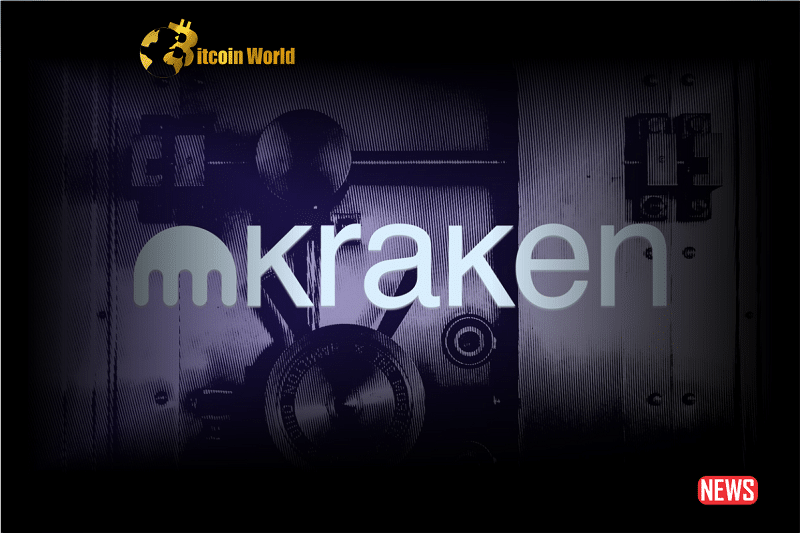The world of cryptocurrency never sleeps, and recent events in South Africa have sent ripples through the digital asset market. Imagine a key player suddenly changing the rules of the game – that’s essentially what happened when Kraken, a major global crypto exchange, decided to stop accepting deposits from South African users. What was the immediate impact? A noticeable jump in the price of cryptocurrencies on local South African exchanges. Let’s dive into what triggered this, how it’s affecting the market, and what it means for crypto enthusiasts in the region.
Why the Sudden Shift? The FATF Factor
For a while, the difference in price between global crypto exchanges and those in South Africa, known as the ‘premium,’ hovered between a modest 0.7% and 1.5%. This was the norm until Kraken’s announcement. The catalyst? Kraken’s banking partner reportedly flagged South African deposits due to concerns around anti-money laundering. But why now?
Many experts believe this decision is directly linked to South Africa’s recent inclusion on the Financial Action Task Force (FATF) ‘greylist’. Think of the greylist as a watchlist for countries with shortcomings in their measures to combat money laundering and terrorist financing. This greylisting, which followed the classification of crypto assets as financial products earlier in the year, has raised eyebrows and sparked caution among international financial institutions.
The Premium Surge: A Snapshot of Market Reaction
The immediate aftermath of Kraken’s move was a visible increase in the crypto premium on South African exchanges. We’re talking about a jump of around 3.5% – a significant shift in a relatively short period. This price difference highlights the impact of accessibility and demand within a specific market. When a major avenue for acquiring crypto is restricted, local demand can drive prices upwards.
Winners and Losers: Navigating the New Landscape
Kraken’s decision undoubtedly created challenges, particularly for those who relied on the platform for arbitrage – a strategy that involves exploiting price differences across various exchanges to make a profit. However, as one door closes, others often open. Here’s a look at how different players are adapting:
- Arbitrage Opportunities Evolve: While Kraken’s exit impacted some, firms like Future Forex and other crypto arbitrage specialists quickly sought alternative strategies to continue serving their clients. This demonstrates the resilience and adaptability within the crypto market.
- The Perspective of Providers: Omer Iqbal from Fivewest, a crypto arbitrage service provider that doesn’t rely on Kraken, noted that the premium surge is actually beneficial for their clients. Reduced trading volumes on specific platforms can lead to more favorable rates for those who aren’t dependent on them.
- Anticipating Normalization: Kyle Dowie, co-founder of Dooya, another crypto arbitrage service, emphasized the unexpected nature of Kraken’s announcement. He anticipates that the premium fluctuations will likely stabilize once Kraken secures a new local banking partner.
The Bigger Picture: Regulation and Market Dynamics
Kraken’s situation underscores the intricate relationship between regulatory changes, the operations of crypto exchanges, and the resulting market dynamics. South Africa’s greylisting by the FATF has clearly had a tangible effect, prompting international partners to re-evaluate their risk assessments.
Key Takeaways:
- Regulatory Impact: International regulatory scrutiny, like the FATF greylisting, can significantly influence the operational decisions of global crypto exchanges.
- Market Volatility: Sudden changes in exchange policies can lead to price fluctuations and create arbitrage opportunities (and challenges).
- Adaptability is Key: Market participants are demonstrating agility in finding alternative solutions and navigating the evolving landscape.
Looking Ahead: What’s Next for South African Crypto?
The long-term implications of Kraken’s decision and South Africa’s FATF greylisting remain to be seen. The South African central bank has pledged to enhance oversight and improve the effectiveness of administrative sanctions, which could potentially lead to a reversal of the greylisting in the future. The ability of Kraken to find a new banking partner will also be a crucial factor in stabilizing the market and potentially reducing the premium.
For now, the South African crypto market is in a state of adjustment. Traders and service providers are actively seeking new avenues and adapting to the altered circumstances. This situation serves as a powerful reminder of the interconnectedness of the global financial system and the ever-evolving nature of the cryptocurrency space.
Disclaimer: The information provided is not trading advice, Bitcoinworld.co.in holds no liability for any investments made based on the information provided on this page. We strongly recommend independent research and/or consultation with a qualified professional before making any investment decisions.


